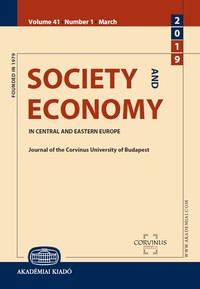The Confucian doctrine of the Mean, the optimality principle, and social harmony
The Confucian doctrine of the Mean, the optimality principle, and social harmony
Author(s): Jungho SuhSubject(s): Political Philosophy, Socio-Economic Research
Published by: Akadémiai Kiadó
Keywords: the doctrine of the Mean; zhong-yong; utility principle; optimality principle; neoclassical economics
Summary/Abstract: The Confucian doctrine of the Mean teaches that too much is as bad as too little. The Aristotelian doctrine of the Mean coincidently articulates that there can be too much or too little of nearly every human passion and action. In neoclassical economics, it is assumed that people tend to take any action at the optimal (not too much and not too little) level to maximise the net happiness from the action. This article argues that the Confucian doctrine of the Mean concurs with the optimality principle, and therefore that the optimality principle is a representation of human nature and can be understood as universal human wisdom. It follows that people can adopt both the Confucian doctrine of the Mean and the optimality principle as worldly common wisdom beyond the blunt dichotomy of spiritual orientalism and materialistic individualism. Too much emphasis on the technical differentials between the two has undermined the common wisdom embedded in them.
Journal: Society and Economy. In Central and Eastern Europe ǀ Journal of the Corvinus University of Budapest
- Issue Year: 42/2020
- Issue No: 1
- Page Range: 59-73
- Page Count: 15
- Language: English

